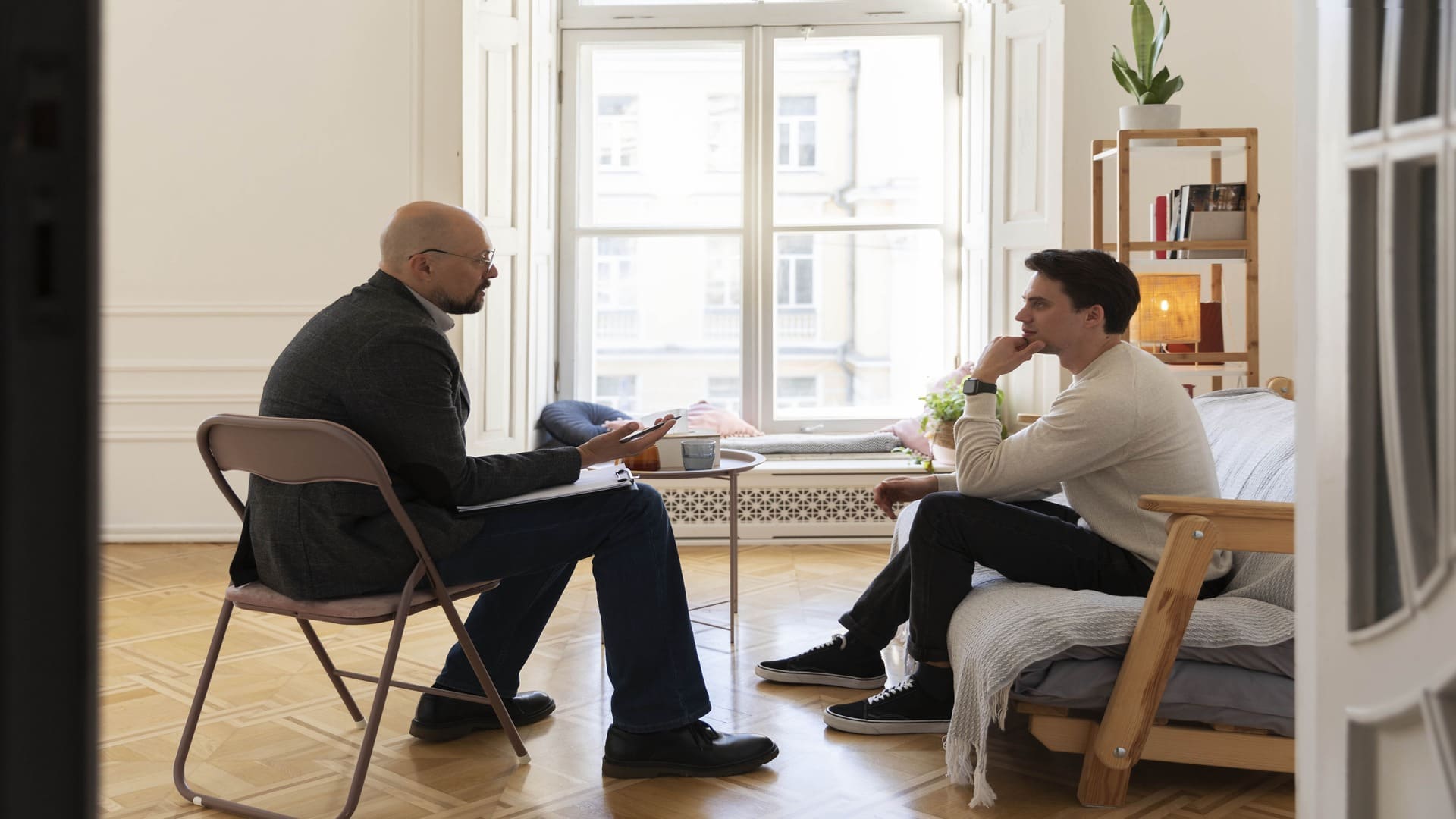Nurturing healthier, happier connections with Relationship Counselling.

Relationship counseling, also known as couples therapy or marriage counseling, is a form of psychotherapy that focuses on improving the dynamics and communication within a romantic relationship. It involves a trained therapist working with a couple to help them address and resolve conflicts, enhance their connection, and develop effective coping strategies. The goal of relationship counseling is to promote healthier and more satisfying partnerships and to equip couples with the skills to navigate challenges and strengthen their bond.
Mode of Counselling: Both In-person/Online Counselling
VRulein supports all kinds of payment methods and allocates your slots for counselling according to your appointment. You will receive payment confirmation through SMS and mail services.
A session usually lasts for 45 minutes to 1 hour
Please read the Frequently Asked Questions section given below before booking an appointment. No Refund is possible. Please ensure your/client’s availability & willingness before paying the fee. It cannot be rescheduled. Only the client’s agenda will be taken and the client will be met first. If the client is not in the venue for 20 minutes from the scheduled appointment time, your session will be cancelled and no refund is possible.
KRM tower, 8th Floor, South zone,Harrington road, Chetpet - 600031
Online: Google Meet App
Nurturing healthier, happier connections with Relationship Counselling.
You may need relationship counseling when you encounter the following symptoms or situations in your partnership:
Communication Problems: Persistent difficulties in effectively communicating with your partner, including frequent arguments, misunderstandings, or communication breakdowns.
Repetitive Conflicts:Frequent or unresolved conflicts that keep resurfacing and lead to emotional distress.
Lack of Intimacy:A noticeable decline in emotional or physical intimacy in the relationship, including a loss of affection, sexual satisfaction, or emotional connection.
Trust Issues:Issues related to trust, such as infidelity or other breaches of trust that have damaged the relationship.
Major Life Transitions:Significant life changes, such as marriage, childbirth, or relocation, that are causing stress and strain in the relationship.
Emotional Distance:A sense of emotional disconnection or feeling distant from your partner for an extended period.
Parenting Conflicts:If you're parents, ongoing disagreements about parenting styles or issues related to raising children.
Substance Abuse or Addictions: If one or both partners struggle with substance abuse or addictive behaviors that are negatively impacting the relationship.
Feelings of Loneliness or Unhappiness:If you consistently feel lonely, unhappy, or unsatisfied in your relationship, despite efforts to improve it.
Preventative Maintenance:Some couples seek counseling as a proactive measure to strengthen their relationship and acquire better communication and conflict-resolution skills.
If you notice any of these symptoms or circumstances in your relationship and find it challenging to resolve them on your own, seeking professional help through relationship counseling can be a beneficial step to address the issues and work toward a healthier, more fulfilling partnership.

Counseling can provide valuable solutions to address challenges in a relationship. Here are some counseling strategies and solutions:
Communication Skills:Counseling can help improve communication by teaching active listening, effective expression of feelings, and non-defensive responses to criticism.
Conflict Resolution:Therapists can assist in developing healthier ways to resolve conflicts, focusing on compromise, negotiation, and problem-solving.
Emotional Expression:Couples can learn to express their emotions more openly and honestly, fostering a deeper emotional connection.
Trust-Building:Counseling can address trust issues through transparency, rebuilding trust, and working on forgiveness.
Intimacy Building:Therapists can help couples rediscover emotional and physical intimacy, enhancing the connection between partners.
Boundaries and Space:Setting healthy boundaries and allowing space for individual growth is important, and counseling can guide couples in this area.
Identifying Patterns:Therapists can help couples recognize negative patterns and behaviors that contribute to relationship challenges.
Stress Management:Developing effective stress management techniques can be important, especially if external stressors are impacting the relationship.
Exploring Values and Goals:Couples can align their values and long-term goals through counseling, ensuring they are on the same page.
Learning to Let Go:In some cases, counseling may help couples consider whether it's best to separate or divorce, and it can assist with the emotional challenges associated with such decisions.
It's important to remember that counseling solutions are personalized to the unique needs and challenges of each relationship. Seeking professional guidance from a trained therapist or counselor can provide valuable insights and strategies to address specific issues and enhance the overall health of the relationship.

Relationship counseling is important because it offers couples the guidance and tools they need to overcome challenges, improve their connection, and build a healthier, more fulfilling relationship. It can help couples navigate difficult times and strengthen their bond, leading to greater happiness and satisfaction in their partnership.

“ my teenage transformation has been remarkable since starting counseling. Thanks for being a guiding light in their life. ”

“ Compassionate and effective counseling for all teenager. Improved communication and coping skills. Highly recommended. ”

“ my adolescent found a safe space to share and heal. Grateful for this valuable support system. ”

“ Professional, understanding, and immensely helpful – this counseling service made a world of difference for our family. ”